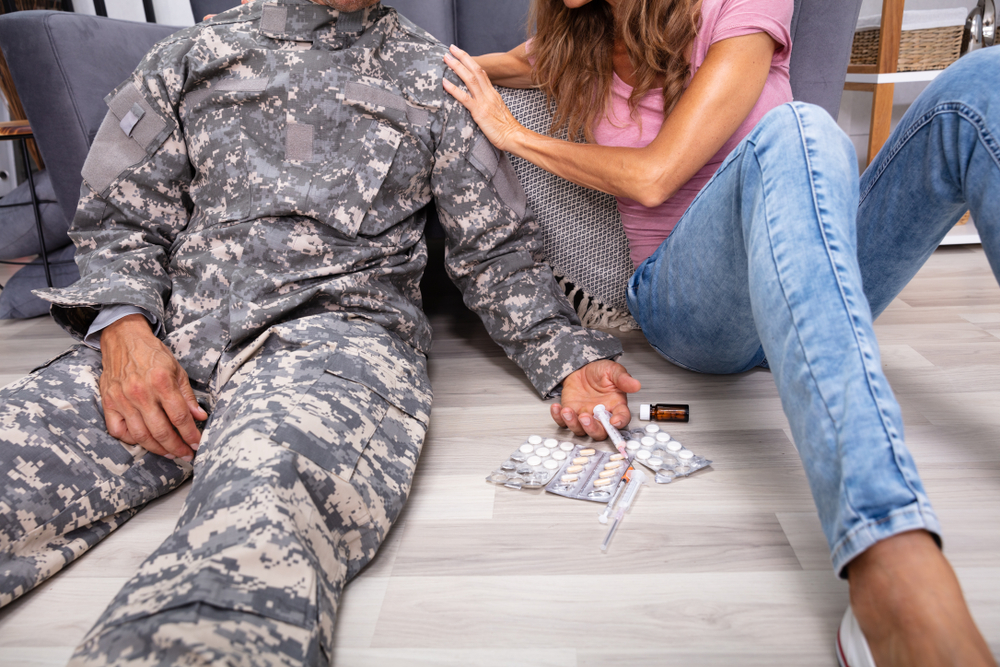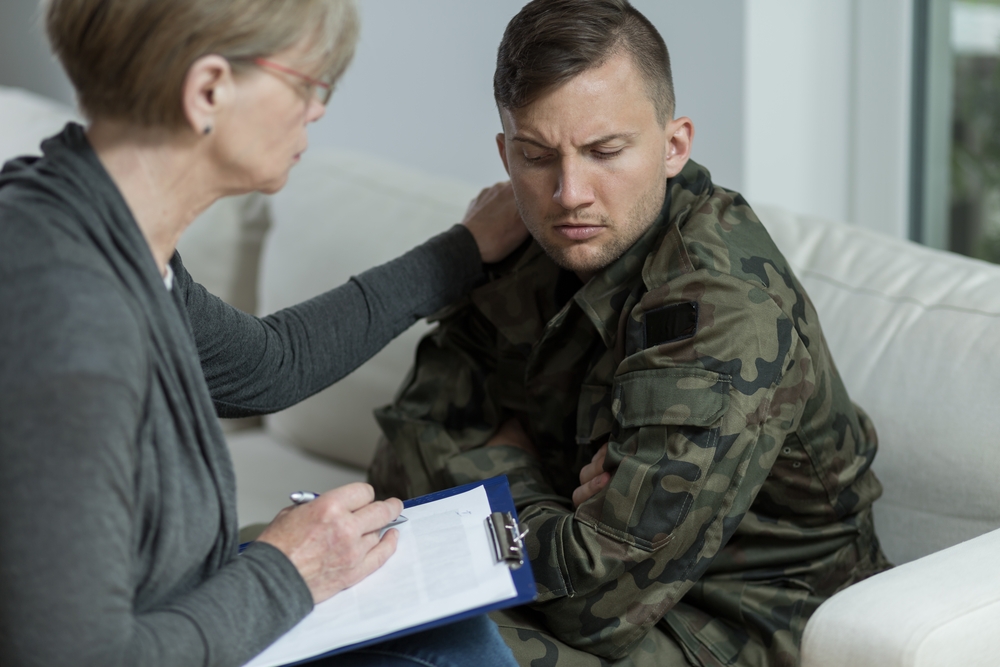Last Updated:
September 16th, 2025
Seeking Rehab as a Veteran | Options You Have
Leaving the forces doesn’t always bring the peace you expect. For many veterans, it marks the start of a quieter struggle: feelings of isolation, unresolved pain, or a sense of drifting without purpose. In the middle of that, habits can creep in. A drink to unwind, painkillers to cope with chronic pain, something stronger to block things out. Over time, it can take over. If any of this feels familiar, know that you’re not alone and support is closer than you might think.
How addiction can take hold after serving your country
There’s a myth that addiction only affects people with no structure, no willpower, or no direction. If that were true, veterans would be the last people to ever struggle. But addiction doesn’t care about your background. It doesn’t care how strong you are. It often finds its way in when structure disappears and you’re left trying to navigate the world without the routine you were used to.
Here are a few ways addiction can take root:
Struggling with an addiction? If you are ready to seek help, reach out to us today, and a member of our compassionate team will help you find the best option for starting your recovery journey.
Signs that you may be dealing with addiction
As is the case with many addictions, they don’t always make themselves obvious. They can start as habits that quietly slip into daily life without causing any real problems, at least not yet. If you’re using drugs or alcohol to cope with what you’re going through, it’s worth pausing for a moment and asking yourself:
- Do I need a drink or pill to get through the day?
- Have I told myself I’ll cut back, only to keep doing it?
- Is my temper shorter, my moods more unpredictable?
- Do I feel uncomfortable or agitated if I haven’t had something?
- Have people mentioned concern, even if I brushed it off?
If you’ve answered ‘yes’ to even one of these questions, it might be time to reach out and talk to someone.
What addiction support looks like for veterans
Many veterans put off getting help for addiction, and it’s easy to see why. It can feel like most people in healthcare don’t truly understand what you’ve been through. But there are services out there made specifically for veterans, and some of the people running them have stood where you’re standing now. Below, we take a look at some of the support options available to you.
Veteran-specific outpatient services
Some recovery programmes are tailored for veterans, combining addiction treatment with mental health support. These services often include staff who are ex-military themselves or trained to work with the unique challenges veterans face.
Community and peer support
Talking to people who have walked a similar path can make a huge difference. There are veteran-only support groups across the UK, both in-person and online, where you can share what’s going on without needing to explain every detail.
Therapy that addresses trauma and addiction together
Many treatment options now take a dual-diagnosis approach. That means they treat both the addiction and any underlying issues, like PTSD or anxiety, at the same time. Techniques like CBT, EMDR and trauma-informed counselling can help process what happened without relying on substances to numb it.
Addiction rehab options for veterans
If you’re a veteran living with addiction, rehab can provide the structure and support you need to take back control. Both inpatient and outpatient rehab are available, and the right choice depends on your personal situation, responsibilities, and the level of care you need.
Inpatient rehab gives you a chance to step away from everyday triggers and fully focus on recovery. You’ll stay at the centre for a set period, often taking part in a mix of therapy, group work and holistic support. Some facilities are familiar with the needs of veterans and tailor parts of the programme around that.
Outpatient rehab, on the other hand, allows you to stay at home while attending therapy sessions, support groups and check-ins during the week. It’s flexible and discreet and works well for those who have commitments but still want regular support from professionals.
Whichever path you take, the most important thing is that the treatment fits you. If you’re not sure where to begin, Addiction Helper can guide you through the options and help you find a programme that understands what you’ve been through.
What are the next steps?
For many veterans, asking for help can feel harder than anything they’ve faced before. You’ve spent years pushing through, staying strong, and doing what needed to be done, so it makes sense that opening up now might feel unfamiliar or even uncomfortable.
You don’t need to have everything figured out before reaching out. Even if you’re unsure whether your situation ‘counts’ as addiction, or whether treatment is right for you, that’s okay. What matters is recognising that something’s been weighing you down and being open to the idea that life could feel lighter.
Addiction Helper is here to walk you through what comes next. Whether it’s exploring rehab options that understand military life, finding outpatient support that works around your responsibilities, or simply speaking with someone who listens without judgement, you’ve got nothing to lose by reaching out to us today.
Our compassionate team are ready and available to take your call, and guide you towards lasting the lasting addiction recovery you deserve.
Frequently Asked Questions
(Click here to see works cited)
- Teeters JB, Lancaster CL, Brown DG, Back SE. Substance use disorders in military veterans: prevalence and treatment challenges. Subst Abuse Rehabil. 2017 Aug 30;8:69-77. doi: 10.2147/SAR.S116720. PMID: 28919834; PMCID: PMC5587184.
- McGuire AP, Elmore C, Szabo YZ, Kurz AS, Mendoza C, Umucu E, Creech SK. Exploring the trajectory and correlates of social isolation for veterans across a 6-month period during COVID-19. PLoS One. 2023 Mar 1;18(3):e0281575. doi: 10.1371/journal.pone.0281575. PMID: 36857305; PMCID: PMC9977007.



